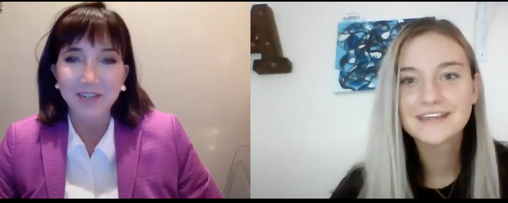|
TUCSON, Ariz. — "We love you Tucson. Thank you for all the years of support."
That's the message Mike Gura, the owner of Public Brewhouse, wants to leave with his community. After five years of serving beers at its location near Historic Fourth Avenue, this weekend was Public Brewhouse's last. Gura says closing the location is bittersweet, but he's grateful to the Tucson community for its support over the years. "One thing that's really struck me, as I've reflected over this COVID time is we didn't just share a space, we shared time and space," says Gura. "The original intention of this space was to build a community and create a place where anybody feels welcome." Regulars say with its live music, trivia nights and friendly environment, Public Brewhouse succeed in doing just that. "Bar being packed, standing room only, getting beers and just enjoying time with friends," are some of the memories Andrew Washburn says hes has from frequenting the brewery on Wednesdays. The brewery's closing, is due largely to the COVID-19 pandemic. Gura says Public Brewhouse is a small brewery, and it wasn't able to change it's distribution model to stay profitable once having in-person patrons became a health risk. He adds that the location's lack of outdoor patio space provided another obstacle. "When COVID hit, without the capacity to can or make money for a distribution model, it really hit us hard," says Gura. "Our whole model is based on over-the-counter sales. You take the over the counter part away, and it's just struggling to stay afloat." But despite having to close its doors, Gura says, he's proud of the impact Public Brewhouse has had in Tucson over the past five years. "What I've always told the bartenders and the staff is it's not about the beer we sell. It's about the experiences we create," says Gura. That's a lesson he passed down to Ayla Katahi, who began her career at Public Brewhouse and is now Head Director of Brewing at Borderlands. "He [Gura] said, this is part of what happens. We have these great employees and provide mentorships, and the next step is you move on and you give back to the community," says Katahi. "Leaving Public meant that I was leaving family and community. I have a deep respect and a deep love for Public Brewhouse." While he's sad that the brewery has to close, Gura says Public Brewhouse was able to contribute to the community and history of Tucson. "I think about the weddings that were held here, the receptions, the wakes, the people who maybe met here and are happily married, the connections people made," says Gura. "Hopefully that lead to something fruitful and positive in the world. That's all I could ask for." There's still a chance this won't be the last you hear about Public Brewhouse. Gura says they are looking into ways to continue to share their brews with the Tucson community, and he hopes they're able to reopen again one day. Originally posted by KGUN9 October 11, 2020
0 Comments
SCOTTSDALE, Ariz. — Arizona is widely viewed as a battleground state in the 2020 election, and Jo Jorgensen is hoping voters who are unsure about supporting President Trump or Vice President Biden will support a third-party candidate.
"There are so many people who don't know they don't have to vote for Trump or Biden," says Jorgensen. "After the presidential debate our website slowed to a stop because so many people were checking it out." Jorgensen, a Clemson University professor and former Libertarian vice presidential nominee, says she wants to participate in the presidential debates and is willing to do so either virtually or in person. "I just think it's wrong that they're keeping me off the stage," says Jorgensen. "I do understand that they are their own private entity, I get that. However, presidential debate commission just sounds so official and impartial, like it's part of the Government, but it's not. It's basically the Democrats and Republicans wanting to have their own debate and not wanting any other alternative voice heard." According to The Commission on Presidential Debates' website, there are three requirements for a candidate to be included in the debates. Since she is legally able to run for president and will be on the ballot in all 50 states, Jorgensen meets the first two; however, she does not "have a level of support of at least 15 percent of the national electorate," which is the third requirement listed. The Libertarian nominee for President is polling at about 4% nationally, according to Pew Research Center. The most recent poll from The New York Times/Siena College has her at 3% in Arizona. Jorgensen also responded to a frequent criticism of third-party nominees: being accused of pulling votes from Democratic or Republican candidates. In 2016, Libertarian Gary Johnson won just over 4% of the vote in Arizona, and Trump won the state by 3.5%. "It's not my fault he [Trump] didn't follow through on his promises. The only way I can be a so-called spoiler is if the people running didn't do their job. And I would say the same thing for Joe Biden," says Jorgensen. Jorgensen is also the first female Libertarian presidential candidate, but she tells KGUN9 that doesn't play a role in her campaign. "I don't think it makes a difference at all," says Jorgensen. "I think what's important is the message, and I would rather vote for a man who has my message, which is allowing us to make our own decision, than a woman who thinks bureaucrats in Washington should have control of our lives." Saturday, Jorgensen made her first, and so far only, scheduled campaign stop in Arizona. She hosted an outdoor rally in Scottsdale where she spoke with supporters and answered questions from attendees. At the rally, she talked about a variety of topics including decriminalization of drugs, protection of data and her vision for smaller government. Her running mate, Spike Cohen, visited Phoenix in August. Originally posted on KGUN9 October 11, 2020. |
Aubrey GelpierynAubrey Gelpieryn is a journalist currently in New York. She enjoys writing about music, politics and current events. Archives
January 2021
Categories
All
|


 RSS Feed
RSS Feed